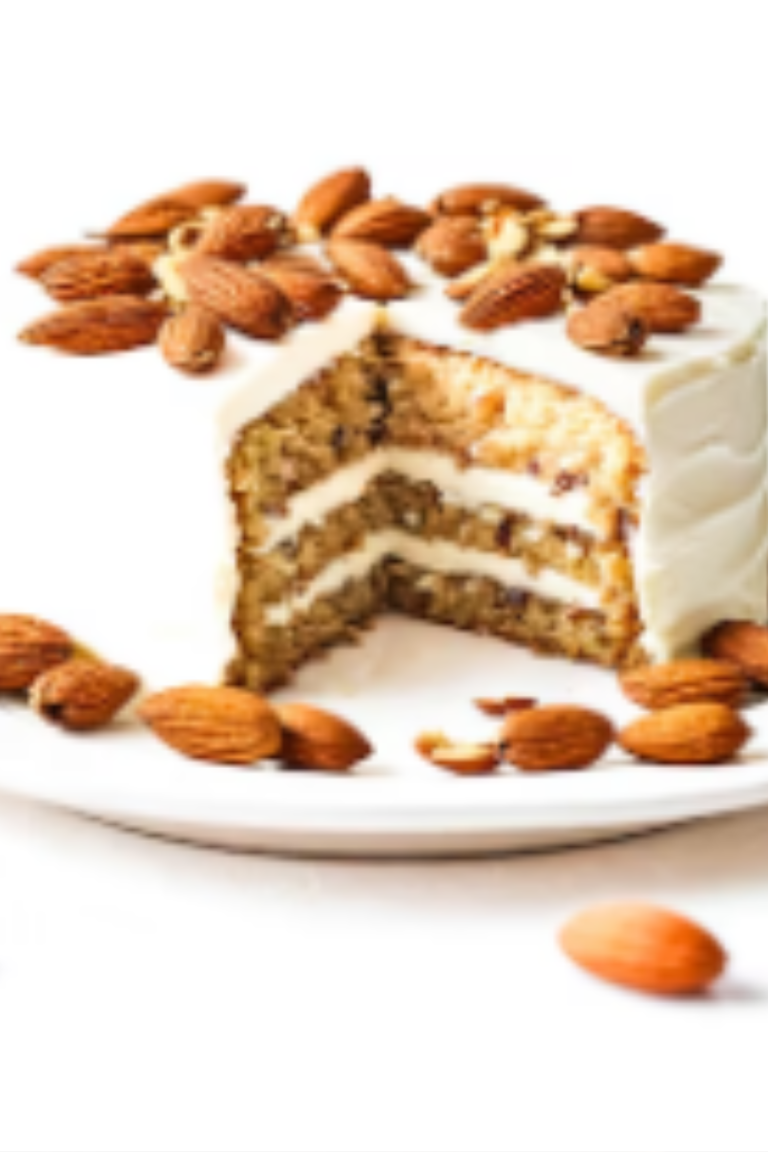ECB: Egg Coconut Butter role in cakes Explained
Table of Contents
ToggleWhat is ECB – Egg Coconut Butter?
ECB – Egg Coconut Butter is a unique ingredient blend that combines the richness of eggs with the natural sweetness and flavor of coconut. It serves multiple purposes in baking, particularly in cake recipes, where it contributes to both texture and taste. Unlike conventional butter, ECB – Egg Coconut Butter adds a subtle coconut undertone while enhancing the moistness and crumb structure of cakes. Check out the right Egg Coconut Butter, cake tools, and ingredients that you need here.

Its Role in Cakes
When added to cake batter, ECB – Egg Coconut Butter acts as a binder, holding the ingredients together while providing a moist and fluffy texture. The eggs in ECB provide protein, which helps in forming a strong network within the batter, ensuring the cake rises evenly and maintains its shape. Meanwhile, the coconut component adds a hint of tropical flavor that pairs well with various cake flavors, from vanilla to chocolate and beyond.
Enhancing Moisture and Flavor
One of the standout features of ECB – Egg Coconut Butter is its ability to enhance moisture retention in cakes. This is especially beneficial in recipes where a moist, tender crumb is desired. The natural fats in coconut and eggs work together to keep the cake soft and prevent it from drying out, even after several days.
Egg Coconut Butter is not just a substitute for traditional butter in cakes; it’s a versatile ingredient that elevates both the texture and flavor of your baked creations. Whether you’re a seasoned baker or just starting out, experimenting with ECB can lead to delightful results. Incorporate it into your next baking adventure and taste the difference for yourself. Check out the right Egg Coconut Butter, cake tools, and ingredients that you need here.
Drilling Deeper: Comparing ECB – Egg Coconut Butter with Other Ingredients
When comparing ECB – Egg Coconut Butter with traditional butter or other substitutes in baking, several key differences and benefits come to light.
Nutritional Profile
ECB – Egg Coconut Butter offers a distinct nutritional profile compared to traditional butter. While butter primarily provides saturated fats, ECB combines the protein from eggs with the medium-chain triglycerides (MCTs) found in coconut. This combination not only contributes to the structure of the cake but also offers a healthier alternative with added nutrients.
Flavor Profile
In terms of flavor, ECB – Egg Coconut Butter introduces a subtle coconut essence to baked goods. This can complement various cake flavors, enhancing them with a hint of tropical sweetness. In contrast, butter lends a rich, creamy taste without additional flavor notes, making it versatile but less adventurous in terms of taste exploration. Check out the right Egg Coconut Butter, cake tools, and ingredients that you need here.
Texture and Moisture Retention
One of the standout advantages of ECB – Egg Coconut Butter is its ability to improve moisture retention in cakes. The eggs provide structure, ensuring a moist and tender crumb, while the coconut oil contributes to a softer texture. In comparison, cakes made with traditional butter can sometimes be denser, depending on the recipe and handling.
Versatility in Baking
While traditional butter remains a staple in baking, ECB – Egg Coconut Butter offers a unique twist suitable for those seeking alternative flavors and textures in their cakes. It blends well with various ingredients and can be used in a wide range of cake recipes, from classic pound cakes to exotic coconut-infused creations. Check out the right Egg Coconut Butter, cake tools, and ingredients that you need here.
comparison tabular
Here’s a comparison table highlighting the key notes and considerations between ECB – Egg Coconut Butter and traditional butter in baking:
| Aspect | ECB – Egg Coconut Butter | Traditional Butter |
|---|---|---|
| Nutritional Profile | Contains protein from eggs and MCTs from coconut oil. | Primarily saturated fats. |
| Flavor Profile | Adds a subtle coconut sweetness. | Offers a rich, creamy taste without additional flavors. |
| Texture | Contributes to a moist, tender crumb. | Can sometimes result in a denser texture. |
| Moisture Retention | Enhances moisture due to the combination of ingredients. | Provides moisture but may vary depending on recipe. |
| Versatility | Suitable for various cake flavors, especially tropical. | Versatile, but flavor remains consistent across recipes. |
| Health Considerations | Offers additional nutrients like protein and MCTs. | Higher in saturated fats, which may be a concern. |
| Usage and Substitution | Can be used as a direct substitute for butter in recipes. | Standard substitution but with flavor implications. |
| Baking Performance | Improves structure and can lead to lighter cakes. | Known for creating rich, dense textures. |
Key Notes and Considerations:
- Nutritional Benefits: ECB – Egg Coconut Butter provides added protein and medium-chain triglycerides (MCTs), potentially offering a healthier alternative compared to traditional butter’s primarily saturated fat content.
- Flavor Dynamics: While traditional butter offers a classic creamy taste, ECB introduces a subtle coconut sweetness, which can enhance certain cake flavors, particularly those with tropical or exotic profiles.
- Texture and Moisture: ECB – Egg Coconut Butter excels in maintaining moisture and creating a tender crumb due to the combined properties of eggs and coconut oil. This can result in cakes that stay moist longer compared to those made with traditional butter.
- Versatility: Traditional butter is widely versatile in baking, but ECB – Egg Coconut Butter opens up opportunities for unique flavor combinations and healthier baking options, especially for those looking to explore different tastes and textures.
- Considerations: When choosing between ECB and traditional butter, consider the specific flavor and texture requirements of your recipe. ECB offers a distinct flavor profile and nutritional benefits but may not always substitute seamlessly in every recipe that traditionally calls for butter. Check out the right Egg Coconut Butter, cake tools, and ingredients that you need here.
FAQs on ECB – Egg Coconut Butter in Baking
Q: Can ECB – Egg Coconut Butter be used as a direct substitute for traditional butter in all baking recipes?
A: While ECB – Egg Coconut Butter can generally replace butter in many recipes, it’s important to consider its flavor profile and how it might complement or alter the taste of your baked goods. For recipes where a subtle coconut flavor is desirable, ECB can be an excellent choice.
Q: What are the nutritional benefits of using ECB – Egg Coconut Butter compared to traditional butter?
A: ECB – Egg Coconut Butter offers added protein from eggs and medium-chain triglycerides (MCTs) from coconut oil, making it a potentially healthier option compared to traditional butter, which is primarily saturated fat.
Q: Does ECB – Egg Coconut Butter affect the texture of cakes differently than traditional butter?
A: Yes, ECB – Egg Coconut Butter can contribute to a moist and tender crumb in cakes, thanks to the combined properties of eggs and coconut oil. This may result in cakes that stay moist for longer periods compared to those made with traditional butter.
Q: How can I adjust my recipes when using ECB – Egg Coconut Butter instead of traditional butter?
A: Start by substituting ECB in equal amounts for butter. Depending on your recipe, you may need to adjust other liquids or dry ingredients slightly to achieve the desired texture and consistency. Check out the right Egg Coconut Butter, cake tools, and ingredients that you need here.
Final Words
Experimenting with ECB – Egg Coconut Butter in your baking endeavors can lead to delicious results with added nutritional benefits. Whether you’re aiming to enhance flavor with a hint of coconut or exploring healthier baking alternatives, ECB opens up a world of possibilities. Remember to adjust recipes gradually and enjoy the creative process of discovering new flavors and textures in your favorite cakes and baked goods.

Hi!
I’m Mike, the creator of Forum Foodies. In my own personal experience, understanding ingredients is key to great cooking.
Forum Foodies offers guides on various ingredients, from staples to exotic finds. Join our community, share your experiences, and learn from fellow food lovers.
Have questions or suggestions? Email me at info@forumfoodies.com. Let’s embark on this delicious adventure together.
Happy cooking.
Mike/
Related Posts
- CMP: Coconut-Mango Paste role in cakes Clarified
In this topic, I'm going to talk about CMP - Coconut-Mango Paste in my own…
- CFC: role in cakes Clarified
In this topic, I'm going to talk about coconut flour and its role in cakes,…
- DCF: Date Coconut Frosting role in cakes Clarified
In this topic, I'm going to talk about one of my favorite elements in baking:…
- EB: Egg Boiler role in cakes making Clarified
In this topic, I'm going to talk about the EB - Egg Boiler and its…
- BCF: Banana Coconut Frosting role in cakes Clarified
How to Make Banana Coconut Frosting Making BCF is straightforward and doesn't require any fancy…
- DCP: Date Coconut Paste role in cakes Clarified
Hello there. Ever heard of DCP, or Date Coconut Paste? If not, you're in for…
- BC: Butter Crock role in cake making Explained
In this topic, I'm going to talk about something I love: the butter crock and…
- NB: Nut Butter Maker role in cake making Explained
In this topic, I'm going to talk about the Nut Butter Maker and its role…
- BRF: Butter Ricotta role in cake making Explained
In this topic, I'm going to talk about the delightful ingredient known as Butter Ricotta…
- BT: Butter Turner role in cake making Clarified
In this topic, I'm going to talk about the Butter Turner in my own personal…
- CCF: Coconut Cream Frosting its role in cakes Clarified
In this topic, I'm going to talk about CCF - Coconut Cream Frosting in my…
- ESPBC: in cakes Explained
In this topic, I'm going to talk about the Espresso-Butter Cake (ESPBC) in my own…
- ES: Egg Slicer role in cake making Clarified
In this topic, I'm going to talk about the ES - Egg Slicer and its…
- ET: Egg Topper role in cake making Clarified
In this topic, I'm going to talk about a handy tool in cake making that…
- EB: Egg Beater role in cake making Explained
In this topic, I'm going to talk about the Egg Beater and its role in…




